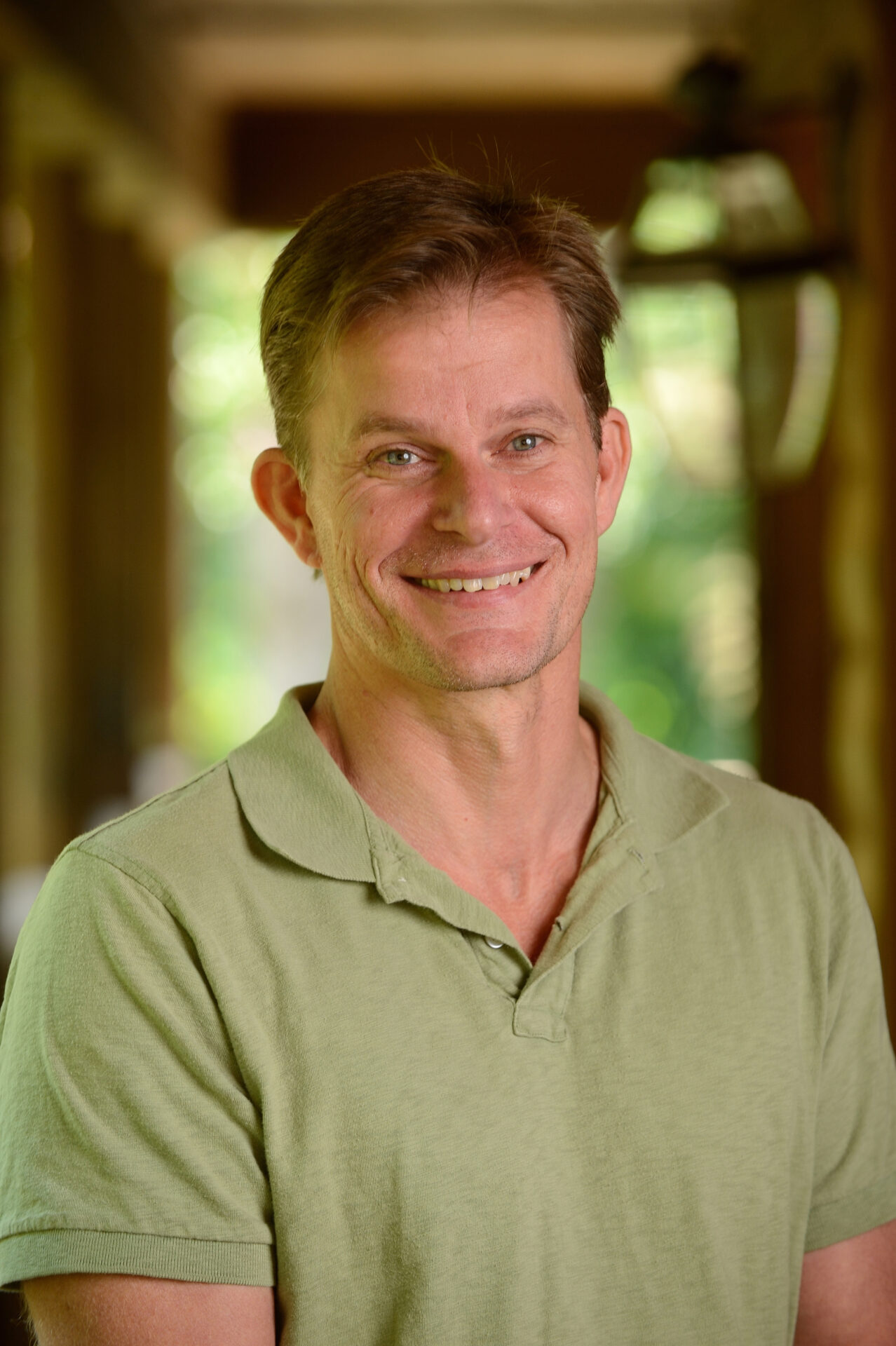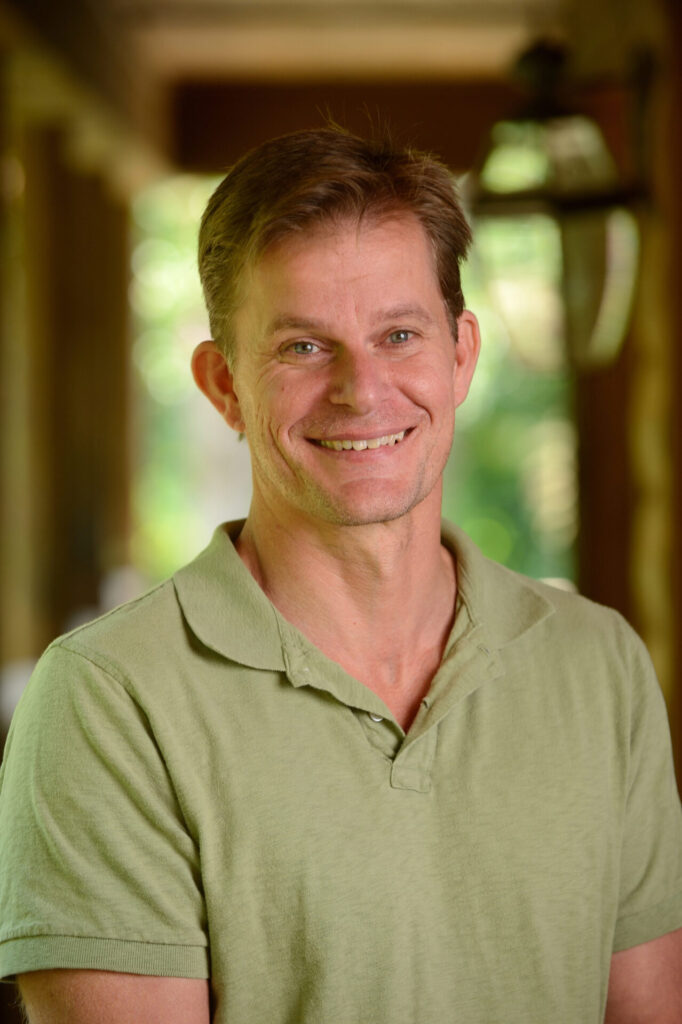Extras News
Arabic Professor Named UM Humanities Teacher of the Year

Staff Report
University of Mississippi

Allen Clark discovered his passion as an educator after studying guitar at the Atlanta Institute of Music and Media and giving lessons at a shop owned by the grandson of legendary composer Henry Mancini, but that passion took him in a totally different direction.
“My interest in teaching was actually born out of my interest in music,” said Clark, associate professor of Arabic and co-director of the Arabic Language Flagship Program at the University of Mississippi.
“While teaching at Mike Mancini’s music store, I must have started to weave this yarn between music and language learning, unbeknownst to me at that time.
“Now, 30-plus years later, some of the commonalities between the two have become somewhat clear, crystalizing over time, but there is still much exploration left, as it now seems to me that this is quite likely an unanswerable question.”
Clark, who has been named the university’s Mississippi Humanities Teacher of the Year, will delve into this topic at 6 p.m. March 7 in the Tupelo Room of Barnard Observatory. His lecture, titled “Language as Music: What are we speaking exactly?” will explore the similarities between language and music.
“Come join us for an evening where we embark on a journey exploring both the commonalities and the differences between these two forms of human communication,” he said.
“From Darwinian notions of evolutionary linguistic and musical expression found in our past to neuroscience’s recent discoveries about shared areas in the brain that process and store linguistic and musical data, to questioning the very nature of how we learn languages and how the way we learn them differs quite substantially from the way we learn music.”
The UM Humanities Teacher of the Year Award, cosponsored by the Mississippi Humanities Council and the College of Liberal Arts, recognizes outstanding contributions of humanities faculty at Ole Miss.
Besides the campus lecture, an awards ceremony and reception is set for 5:30 p.m. March 25 at the Old Capitol Museum in Jackson. The public event will pay tribute to Clark and other outstanding faculty members in traditional humanities fields at each Mississippi institution of higher learning.
Clark’s teaching philosophy was influenced by his own education, he said.
“For quite some time, I have been thinking about the nature of teaching, and as with most human endeavors, it is as complex as we humans are,” he said. “I distilled my thoughts into a short phrase that I use as a type of mantra: The measure of a good teacher is not how much they know, but rather how much their students learn and grow under their tutelage.
“I try to the best of my ability to teach as I wish that I had been taught, not as I have been taught.”
Clark earned his doctorate from Ohio State University in 2009, where he served as a language coordinator, instructor, graduate teaching assistant and graduate research assistant for the Arabic program. He taught Arabic at Middlebury College and Beloit College and served as a military language mentor at Fort Gordon, Georgia.
For much of his academic career, Clark has focused on translation in the Arabic-English language pair, questioning the source of semantic mismatches, whether they be ideological, political, social, military or a combination of these factors.
He has written “The Crisis of Translation in the Western Media” (Lambert Academic Publishing, 2011); coauthored two textbooks and a workbook with Mahdi Alosh, professor of Arabic and associate dean at the U.S. Military Academy; was an associate editor for “Beyond Denotation in Arabic-English Translation” (Sayyab Books, 2010); served as a legal interpreter; translated short stories from Arabic to English; and worked as an abstract translator for various scholarly journals.
“I have known Allen since he first came to campus 13 years ago,” said Donald L. Dyer, associate dean for faculty and academic affairs and distinguished professor of modern languages. “He arrived in Oxford to build an Arabic language program second to none in the country, and he has done that.
“Along the way, he has taught, mentored and nurtured hundreds of students to learn Arabic with the most compassionate and caring of teaching styles. Dr. Clark is known as a master teacher, and learning from him is the experience of a lifetime.”
Clark urges students to consider his classroom as a safe space, where mistakes can be made in order to learn.
“It is quite unfortunate that making mistakes is viewed collectively as a negative, but there is no greater teacher than failure,” he explained. “Just ask James Joyce, whose quote I use in my syllabus: ‘Mistakes are the portals of discovery.’
“I try to relate this quote to any musician who has ever misfingered a scale only to lead them into a new way of thinking and possibly, quite possibly, creating from it a new song or riff.”
He also encourages students to immerse themselves in the language they are learning and to approach it as if they were learning to communicate for the first time.
Watching students grow as people is the greatest reward, he said.
“We are all in search of our identity – who, indeed, are we, really?” Clark explained. “And during their four-year tenure with us studying in our Flagship Program, many of them craft an identity for themselves through learning another language.
“It is my belief that when we learn any language, be it the language of music, math or a verbal language, there emerges in our mind a new persona. For this reason, I give all of our students an Arabic name – to identify a personality that only grows and develops when they function in Arabic. The more they use it, the easier it becomes opening doors into the rich culture of the Arab people.”
For more information on Clark and the Arabic Language Flagship Program, read a Q&A with him here.




























